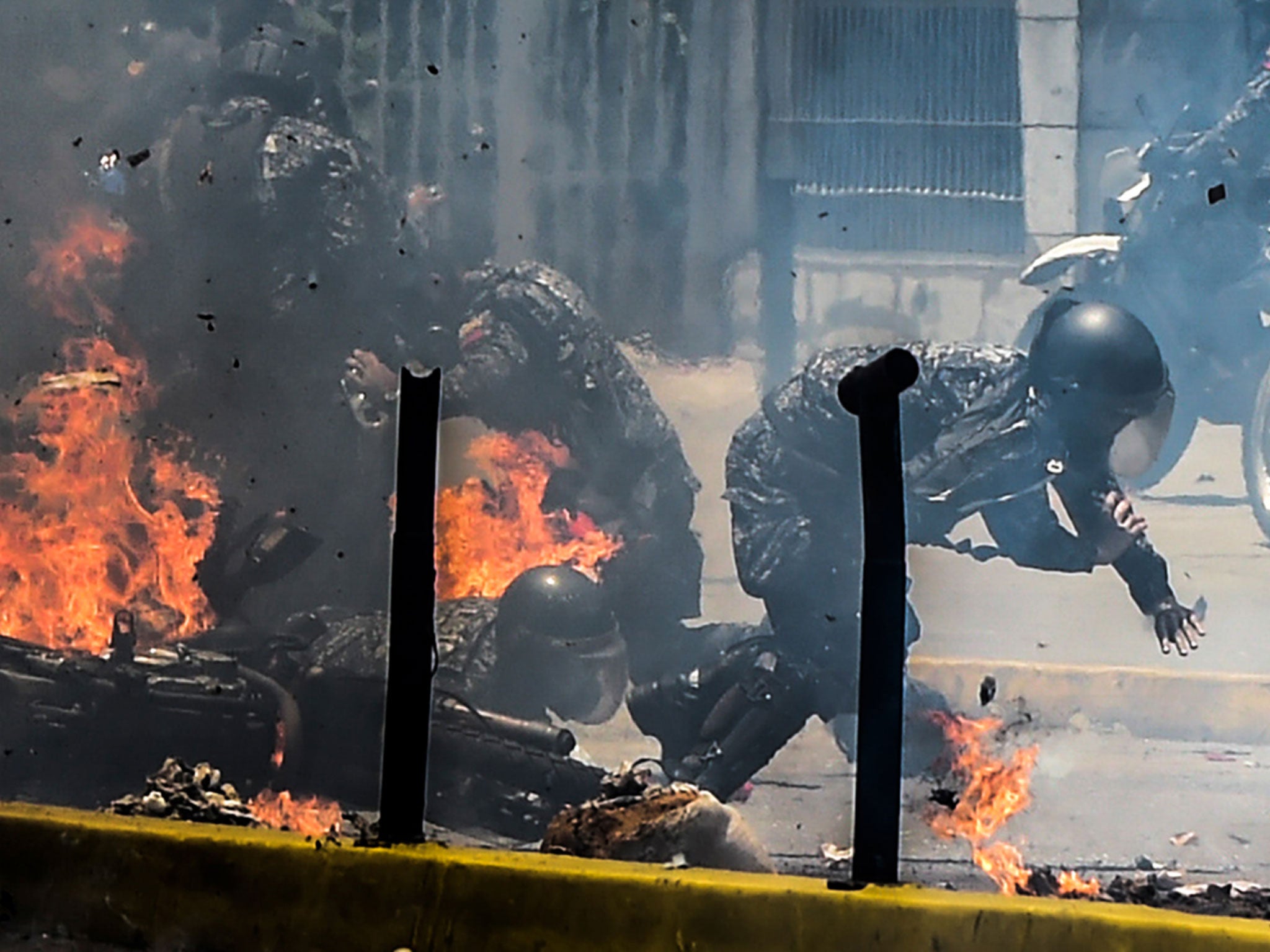The world is watching Venezuela – now is the time for action
What Mr Chavez could swing by charisma, the plodding Mr Maduro can only achieve with a cruder helping of brute force. That is working for him for now – but the UN and its most willing individual members and alliances mustn't be afraid to let the Venezuelan people know they've been heard

Your support helps us to tell the story
From reproductive rights to climate change to Big Tech, The Independent is on the ground when the story is developing. Whether it's investigating the financials of Elon Musk's pro-Trump PAC or producing our latest documentary, 'The A Word', which shines a light on the American women fighting for reproductive rights, we know how important it is to parse out the facts from the messaging.
At such a critical moment in US history, we need reporters on the ground. Your donation allows us to keep sending journalists to speak to both sides of the story.
The Independent is trusted by Americans across the entire political spectrum. And unlike many other quality news outlets, we choose not to lock Americans out of our reporting and analysis with paywalls. We believe quality journalism should be available to everyone, paid for by those who can afford it.
Your support makes all the difference.The 10 people reportedly killed in election violence in Venezuela, at the time of publication, are unlikely to be the last, given the schisms in this once prosperous and peaceful country. President Maduro’s so-called constituent assembly which is being “elected” now is little more than the kind of rigged exercise that is the familiar device of all modern dictators (no doubt a pre-ordained referendum result will follow).
Faced with even the modest safeguards presented by the existing constitution, Mr Maduro’s easiest path to guaranteed survival is a one-party state, and this is what he is now intent upon. That the protests have not turned more violent is perhaps the surprising thing. The opposition has successfully boycotted the election, and the world is alive to what is going on. Yet the state socialist regime of Mr Maduro, picking up from where the late Hugo Chavez left off, looks secure, at least in the short term. What Mr Chavez could swing by charisma, the plodding Mr Maduro can only achieve with a cruder helping of brute force. For now, that will be sufficient.
It is a strange position for this oil-rich nation to find itself in. At a time when even Cuba is moving away from the kind of planned “socialist” economy that succeeded in making everyone (apart from a political clique) equally poor and disenfranchised, the Venezuelan government, presumably to save its own skin, is travelling headlong in the opposite direction. It takes a special kind of genius to transform a huge oil exporter with a fertile landscape, thriving factories and an educated, lively people into just about the poorest and most oppressed place in all the Americas – yet that is precisely what the Chavez-Maduro years achieved. Of course, South American republics have long been infamous for obscene inequalities in wealth and privilege, and habitual corruption – see Brazil and the sad demise of Lula’s reputation for another light that failed – but Venezuela’s decline eclipses anything witnessed in decades.
The socialist experiment in nationalisation, worker management, expelling foreign capitalists and inflating the currency has been a spectacularly counterproductive failure, with a shameless exploitation of founding “Bolivarian” values adding to its abject intellectual poverty.
President Maduro, we may be sure, will take little notice of diplomatic protests, political speeches or media commentators chiding him for, as he sees it (sincerely or not) as liberating the ordinary citizens of Venezuela from their economic shackles. Neither is it obvious that sanctions will bring any rapid reversal of Venezuela’s descent into anarchy; witness the half-century of controls placed by the US on Cuba, or the ineffectiveness of the sanctions now on North Korea, Syria and Russia.
Still, the world has to do something, and, led by the United States, Venezuela’s lucrative oil exports and targeted sanctions on senior members of the Maduro gang are an excellent place to start. The shame of it is that they are likely, with the best will and the cleverest design in the world, immediately to harm Venezuela’s growing impoverished classes more than the powerful elite. Indeed they may well be used by Maduro to explain away chronic shortages of food, medicine and materials, shoving the blame on to the Yankees and their allies rather than mismanagement of the economy.
It is also possible that Russia might opportunistically take some advantage from the situation, given the tense, one-dimensional nature of superpower relations these days. Yet it is still right for the UN, or its most willing individual members and alliances such as the US and EU, to take action. Beaten by the cops, sick from lack of healthcare, and starving, Venezuela’s democrats and political prisoners might as well know that the world has not written them or their country off just yet.
Join our commenting forum
Join thought-provoking conversations, follow other Independent readers and see their replies
Comments